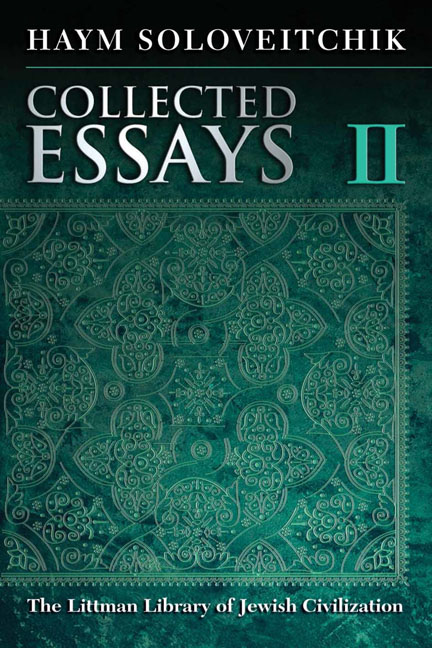Book contents
- Frontmatter
- Dedication
- Preface
- Acknowledgments
- Contents
- Note on Transliteration and Conventions Used in the Text
- PART I RE-EVALUATION OF ELEVENTH-CENTURY ASHKENAZ
- PART II MARTYRDOM UNDER CROSS AND CRESCENT INTRODUCTION
- PART III MISHNEH TORAH
- Bibliography of Manuscripts
- Source Acknowledgments
- Index of Names
- Index of Places
- Index of Subjects
Preface
- Frontmatter
- Dedication
- Preface
- Acknowledgments
- Contents
- Note on Transliteration and Conventions Used in the Text
- PART I RE-EVALUATION OF ELEVENTH-CENTURY ASHKENAZ
- PART II MARTYRDOM UNDER CROSS AND CRESCENT INTRODUCTION
- PART III MISHNEH TORAH
- Bibliography of Manuscripts
- Source Acknowledgments
- Index of Names
- Index of Places
- Index of Subjects
Summary
THE SECOND VOLUME of this collection has a long chronological stretch as it contains both my first venture into Jewish studies and my very last. The study of Iggeret ha-Shemad was part of my BA Honors thesis, while that on the Third Yeshivah of Bavel was written over the past two years.
The first and longest section deals with my re-evaluation of Early Ashkenaz (c.950–1096). Eight essays take issue with much that has been written on this subject for the past thirty-five years. My reservations are longstanding; indeed, I argued against these views with some of their proponents in the late 1970s and early 1980s. Nevertheless, I have put my critique on paper only recently for reasons that I spell out in my introductory remarks to that section. However, the notion of multiple yeshivot in geonic Bavel and their role in the founding and formation of the halakhic culture of Ashkenaz began to take shape in my mind only after I had concluded writing all that had been scheduled for this volume.
The second part of the volume deals with martyrdom, and, for me at least, the most striking thing is that the essay on Iggeret ha-Shemad, written in 1959, and that on martyrdom in Ashkenaz written over forty years later employ an identical technique—that of measurable deflection. This means that the author makes an argument that is patently problematic or wholly out of character, either of which would point to some force deflecting the writer's line of reasoning from its normal path. As an undergraduate I majored in Russian history, but as my university permitted writing an Honors thesis in any area in the discipline, I was free to try to make sense of an early work of Maimonides which I had read with perplexity the previous summer. I doubt very much whether I realized as a college senior the methodological problems involved in proving a bias in an author's argument when one has neither his personal correspondence nor the memoirs of his contemporaries. I simply thought that a thesis had to answer a problem and the more problems one solved, the better the thesis. Of course, one had to show that the other answers would not do, and I had learnt of Occam's razor.
- Type
- Chapter
- Information
- Collected EssaysVolume II, pp. vii - viiiPublisher: Liverpool University PressPrint publication year: 2014



